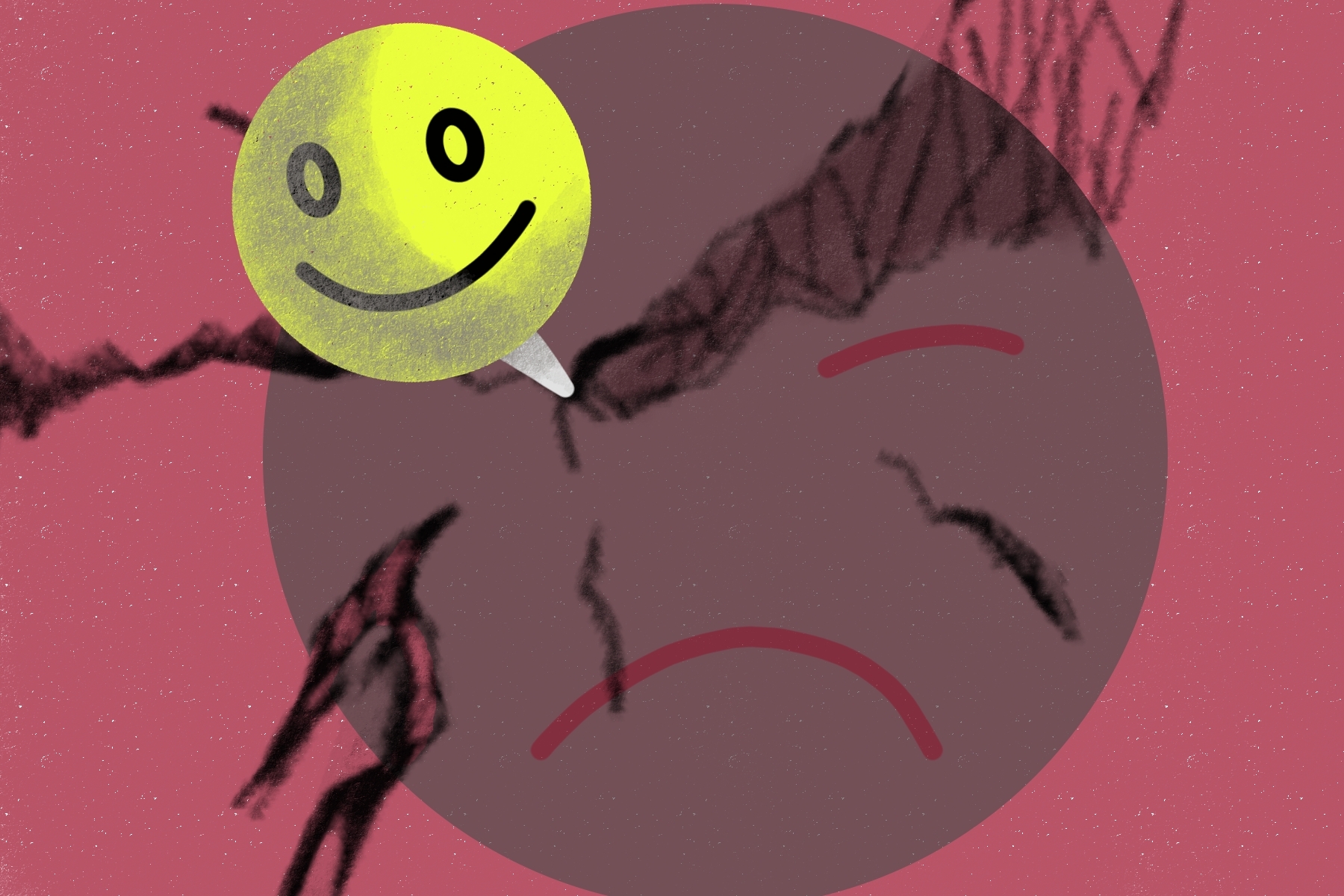We’ve all come across it at some point or another in our lives. An overabundance of empty, inspiring quotes about happiness on social media. Friends or family members that insist everything will magically be okay if you “just stay positive” and “look on the bright side.” Social media profiles cultivated to only show the best and most successful moments of their users’ lives.
All of these are examples of something called toxic positivity, and most of the time they’re anything but positive.
Toxic positivity can be defined as “the excessive and ineffective overgeneralization of a happy, optimistic state” that “results in the denial, minimization and invalidation of the authentic human emotional experience.”
If you haven’t heard of the term toxic positivity before or are guilty of partaking in any of the previous examples of it, you might be slightly offended. But before you click off of this article and declare me a patronizing pessimist who hates everything that’s positive in the world, let me explain.
Too much of a good thing is never good. That saying is applicable to many things, including positivity. Being optimistic, hopeful and generally having a positive outlook on life is not something to be looked down upon. In fact, research shows that optimistic people could enjoy many health benefits not afforded to those more on the glass-half-empty side of the spectrum. It’s when people take their positive vibes to the extreme that problems arise.
The important parts of the definition of toxic positivity are the words “excessive” and “ineffective” as well as “denial” and “invalidation.” Essentially, what might seem like healthy optimism can veer into toxic positivity when it goes too far, doesn’t have the desired effect of improving one’s outlook on life and instead invalidates someone’s emotions or pushes them to deny their feelings completely.
When someone imposes toxic positivity on themselves, it often manifests in the suppression and denial of their own negative feelings. Admittedly this can seem like a pretty good coping mechanism at first. After all, who wants to spend time unpacking their negative emotions when they could just file them away in a deep corner of their brain to be addressed later, or, preferably, completely forgotten about? Unfortunately, this coping mechanism isn’t good in the long run.
For starters, ignoring certain feelings doesn’t mean they’re no longer there — it just means you’re not addressing them. If you don’t address your negative emotions, you never give yourself the chance to work through them. If you suppress your emotions for long enough, they’ll become more intense over time until they suddenly erupt all at once in a way that’s not productive for anyone. On top of that, while optimism might be related to a number of health benefits, repressing your feelings has been linked to a higher risk of premature death from a variety of causes.
It’s also common to experience forms of toxic positivity from people other than yourself, which can be even more frustrating to deal with. Maybe you have a friend or family member whose go-to response to negative emotions is something like “it could be worse,” “stop being so negative” or “just be happy.” Sure, they probably had good intentions, but I’m willing to bet you didn’t feel any better after hearing their positive affirmations. In reality, it might have made you feel even worse about your situation.
In theory, these sayings could inspire hopefulness and remind people that even if their situation seems bad right now, it’s probably not all bad and it will get better eventually.
Unfortunately, that’s not the effect they typically have on people.
I don’t know about you, but when I’m going through a difficult time in my life, I just want someone to listen to me — not invalidate my feelings by telling me to just be more positive.
Sometimes, life just kind of sucks. Maybe you lost your job. Or your significant other broke up with you. Or someone close to you fell ill. Or, maybe, you’re just having a bad day for no particular reason. Regardless, there are infinite scenarios in which feeling negative emotions is completely normal and healthy, and pretending they’re not normal or that they can be instantly remedied with some positive vibes isn’t helpful.
In our current political and social climate, the idea of toxic positivity is particularly relevant. We’re currently living through a pandemic. Many people know someone who has become seriously ill or even died from COVID-19. People have lost their jobs, and we’re all still expected to stay home and socially distance as much as possible. On top of that, the upcoming 2020 presidential election is proving to be extremely stressful for many Americans and protests in support of Black Lives Matter are still prevalent across the country.
In other words, there’s a lot going on right now. Feeling negative emotions is a perfectly normal response to everything we’ve been dealing with this year. It’s time to stop denying that in favor of pushing an overly positive agenda. Keeping a positive outlook on life and reminding yourself of the small good things you still have are important ways to cope with what’s been happening this year, but let’s not take it too far by invalidating ourselves or other people for expressing their negative feelings.
Your feelings are always valid, whether they’re positive or negative. Feeling overwhelmed, stressed and worried about the future are all valid feelings to be experiencing at any point in your life, especially right now. Instead of suppressing negative feelings with a reminder to “just stay positive,” try validating those emotions by acknowledging them, honestly listening to them and actively trying to work through the emotions instead of obscuring them behind a veil of false, toxic positivity. I promise, when all is said and done, doing that will be much more effective than being forever blinded by toxic positive vibes.

















